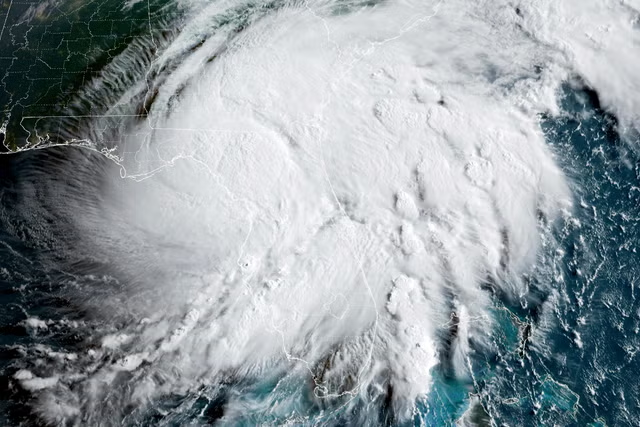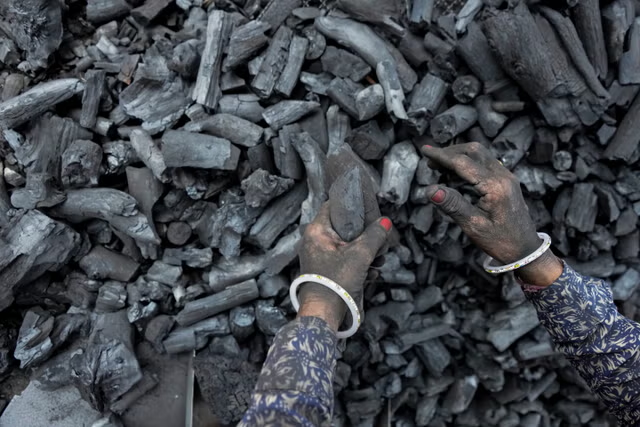Experts have shared what they believe are the factors driving China's rapid nuclear weapons buildup under President Xi Jinping, a trend that has Washington worried.
A recent bipartisan commission's report to Congress highlighted concerns over China's establishment of a "full-fledged nuclear triad," alongside nuclear threats posed by Russia and North Korea. In light of these developments, the commission said that it is essential for the U.S. to continue modernizing its nuclear capabilities at a comparable pace.
Under President Xi Jinping, Beijing has rapidly expanded and modernized its nuclear arsenal. While China currently possesses fewer nuclear weapons than the U.S. or Russia, the Pentagon and the independent Stockholm International Peace Institute say the East Asian country could double its stockpile of an estimated 500 warheads to 1,000 by the end of the decade.
Tong Zhao, a senior fellow with the Carnegie Endowment for International Peace think tank, in a research paper published in July, cited several factors driving the expansion of nuclear weapons capabilities in Xi Jinping's China.
Zhao noted that Xi's concerns about perceived U.S. strategic hostility have directly driven increased Chinese nuclear investments.
He said that as the "power gap" between the U.S. and China narrows, Beijing believes an insecure Washington is "seeking to contain, disrupt, and destabilize China in an effort to impede China's growth and preserve U.S. dominance in the international system."
With this assumption in mind, Xi believes strengthening China's military clout, including its nuclear forces, is necessary to stave off future disruptions by the U.S. and its allies, Zhao said. He added that Xi views nuclear weapons as a "strategic pillar of China's great power status."
The leader probably sees building a more formidable nuclear force as a necessary deterrent with "a profound psychological influence on U.S. and Western perceptions of the international balance of power," Zhao said, citing a Xi political ally quoted by the Wall Street Journal. On the other hand, the U.S. nuclear advantage would lead to greater pressure on China.
"For decades, China has sought to build and maintain a credible nuclear second-strike capability. It has done so to secure a relationship of mutual vulnerability with the United States," Zhao said.
Nuclear second-strike capability refers to a country's ability to respond to a nuclear strike with powerful nuclear retaliation.
Zhao cited Xi as suggesting nuclear capabilities should be prioritized even amid economic decline, with the Chinese leader pointing to Vladimir Putin's Russia as an example.
Insecurity looms large within Beijing's push for nuclear parity, Zhao said.
He cited China's civilian spy agency, the Ministry of State Security, which in 2020 issued a warning that "anti-Chinese forces had already led to the worst international environment for the country" in decades. In its report, the ministry warned the country should gird for the worst-case scenario of armed confrontation with the United States, Zhao wrote.
"Incoherent planning, fixation on showcasing political loyalty to the paramount leader, and a dearth of internal debate also shape China's nuclear decision-making," he said.
Also contributing to the trend has been the massive centralization of authority that occurred since Xi rose to power in 2013.
Zhao pointed out it was a reversal of the path taken by the last three leaders before Xi—Deng Xiaoping, Jiang Zemin, and Hu Jintao—who were more about decentralizing power within the Chinese Communist Party.
"This has profound implications for China's nuclear policy. With Xi's unchecked power and repeated demand for 'absolute loyalty,' civilian and military officials face strong incentives to align with and amplify his policy vision," he wrote.
"China tolerated an unusual level of nuclear vulnerability given the threats it perceived from the United States for a number of years," Ankit Panda, a nuclear policy analyst with the Carnegie Endowment for International Peace, told Newsweek.
"The current build-up will generally improve the survivability of their nuclear forces and represent growth concomitant with the country's growing economic power. It appears to be compatible with Xi's general call for the country to possess a world-class military."
Panda added: "The growing nuclear force may also contribute to an increasing belief in China in the viability of limited nuclear war and on controlling escalation in a nuclear war."
However, without a statement from Chinese leadership, which has so far not acknowledged a Chinese buildup, Panda predicted speculation would continue in the U.S.
China follows a policy of "no first use" of nuclear weapons and a nuclear strategy that focuses on self-defense, Chinese Foreign Ministry spokesperson Lin Jian said during a July 30 press conference. He stressed that the country maintains the "minimum level" of nuclear strength called for by national security and "never engages in arms races with anyone."
Lin added, "For any country, as long as they do not use or threaten to use nuclear weapons against China, they will not find China's nuclear weapons to be a threat."
China and India are currently the only countries to officially maintain a no-first-use policy, though the Pentagon has called Beijing's commitment into question.
Newsweek reached out to the Chinese embassy in the U.S. and the U.S. Department of Defense with written requests for comment.
Disclaimer: The copyright of this article belongs to the original author. Reposting this article is solely for the purpose of information dissemination and does not constitute any investment advice. If there is any infringement, please contact us immediately. We will make corrections or deletions as necessary. Thank you.



